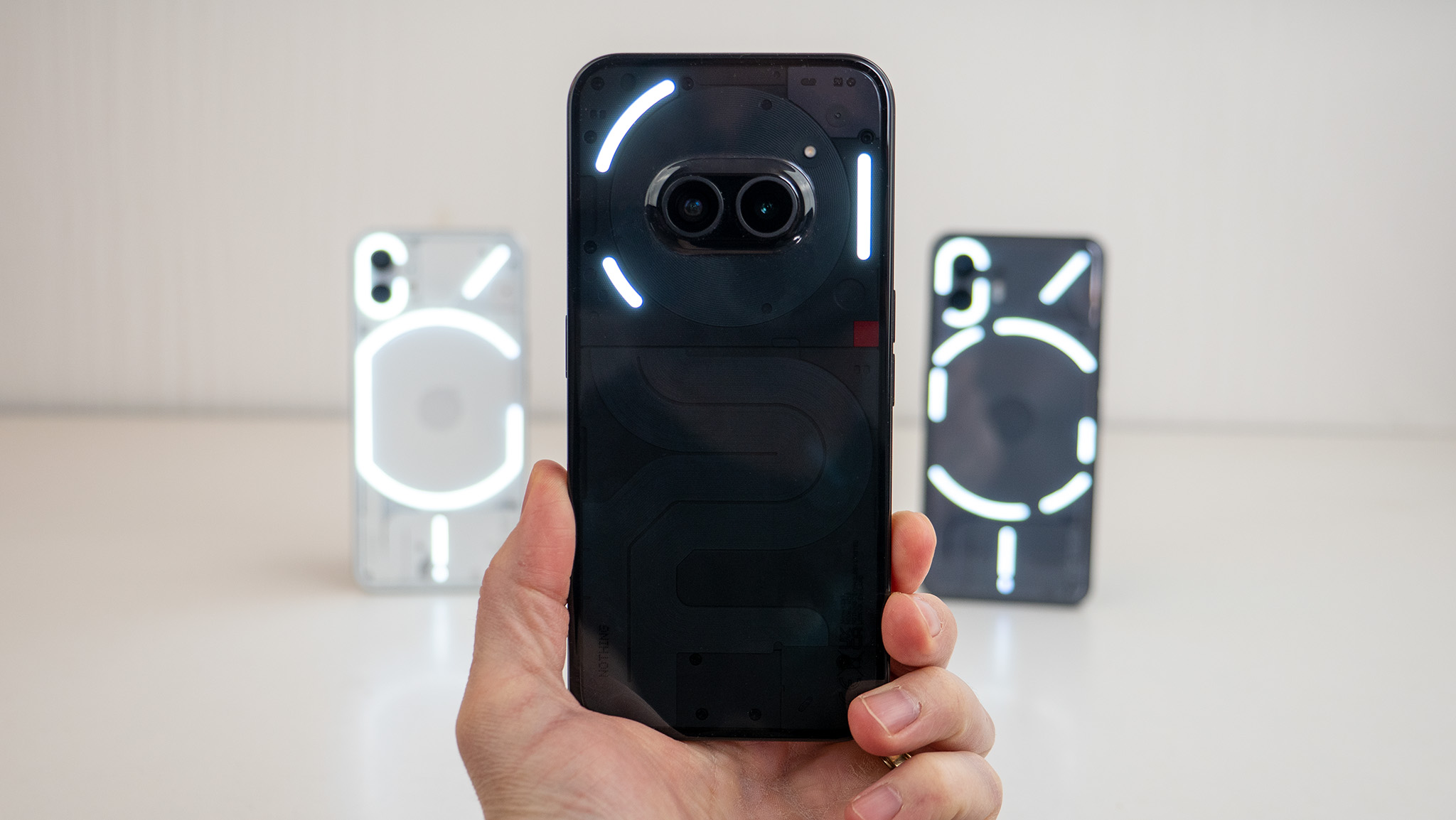
The cheaper but limited option
The Nothing Phone 2a is the newly introduced cheaper, less feature-rich alternative to the Nothing Phone 2. Limited availability aside, it will save you a few bucks but still boasts the signature Glyph interface, massive screen, and Nothing OS customization options, with very minor differences between the two phones.
For
- Unique Glyph design with responsive lights
- Large, high-res screen
- Cheaper option
Against
- No expandable storage
- Only IP54 rated
- No wireless charging support
A step up for a few more bucks
For a few more bucks, you can get the Nothing Phone 2, which adds features like wireless charging support, more light strips on the back, and an improved processor. It's also more widely available at the time of this writing, so depending on where you live, it might be your only option anyway.
For
- More light steps and addressable Glyph interface zones
- Large high-res screen
- Supports wireless charging
Against
- No expandable storage
- Only IP54 rated
- More expensive
When it comes to finding the right phone, you might be interested in looking beyond the usual brands. That’s where a brand like Nothing comes in, and the Nothing Phone 2 vs. Nothing Phone 2a is an interesting comparison. The phones look similar and boast similar feature sets. The Nothing Phone 2a is the newer, slightly step-down, more affordable option. But will it meet your needs, and can you even get it? Let’s take a look.
Nothing Phone 2a vs. Phone 2: The looks and basics
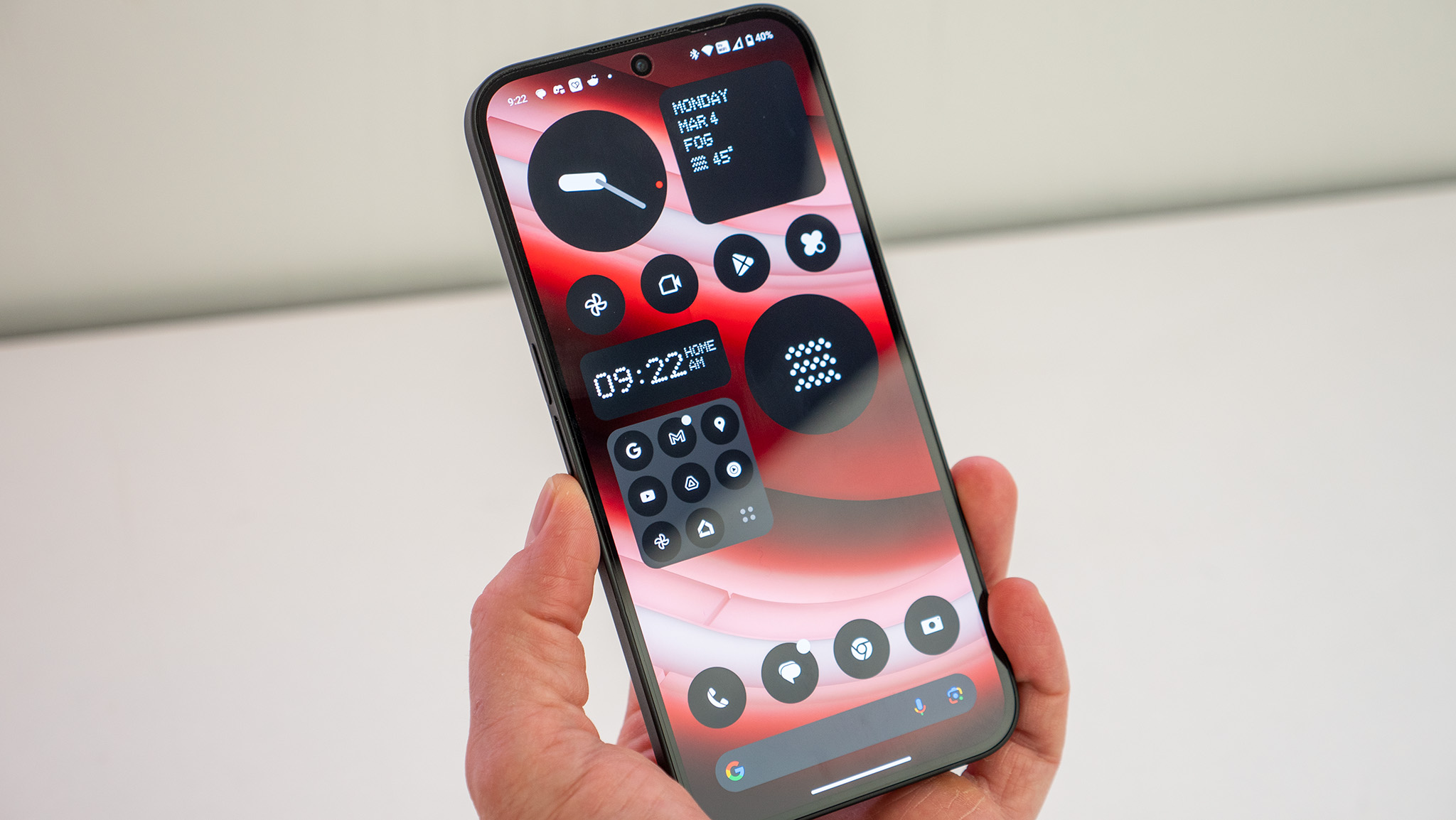
The Nothing Phone 2a has the same Glyph interface with which Nothing fans have become accustomed, with a transparent back that lets you see the inner workings inside. It comes in black, white, or Milk colorways and has a total of three light strips on the back that illuminate to show different actions, from incoming notifications to an expired timer, volume adjustments, and music playback. This is complemented by 26 addressable Glyph interface zones that truly make the phone stand out among others you’ve seen beyond the ones from this brand.
The screen is an ample-sized 6.7-inch AMOLED with a decent 2,412 x 1,080-pixel resolution and 1,300 nits peak brightness. You get up to 120Hz refresh rate and down to about 30Hz. Encased in a polycarbonate chassis with aluminum side rails coated in a polycarbonate resin, this budget phone is not ultra-rugged by any means. But it does have a Corning Gorilla Glass 5 screen, and you’ll probably protect the phone in a case anyway.
In addition to enjoying the lights on the exterior of the device, you can also customize the phone’s screen using themes like monochromatic. Choose from many nothing OS widgets to further personalize the experience so the phone provides all the information you need to get through your day. Android Central’s Nicholas Sutrich says in his review of the Nothing Phone 2 that the company’s home screen design has a calming quality to it.
Speaking of which, the Nothing Phone 2a has a 5,000mAh battery that will give you a day or two of use per charge, and it supports 45W fast charging that can get you another day in just 20 minutes. There’s no support for wireless or reverse charging, though.
The IP54-rated phone can withstand small sprays of water, but it can be submerged. It comes with either 128GB or 256GB storage along with USB-C, dual 5G, Bluetooth 5.3, Wi-Fi 6, NFC, a fingerprint sensor, face unlock, and stereo speakers. However, one thing to keep in mind is that as of this writing, the Nothing Phone 2a is only available in the U.K. and India, though those in the U.S. can get their hands on one as part of the developer program. There’s no official word on widespread U.S. availability just yet.
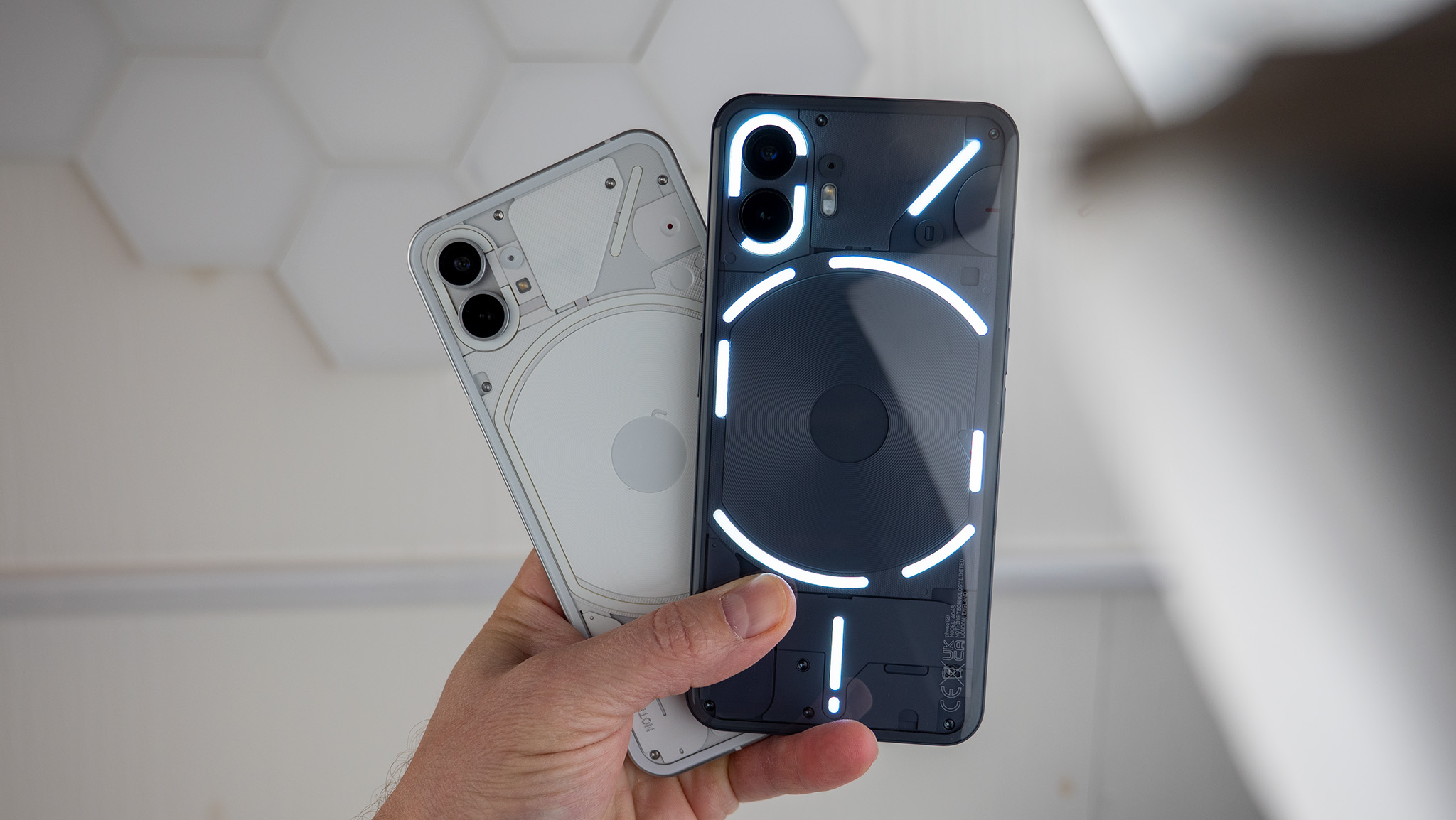
How does that compare to the Nothing Phone 2? The mid-level step-up, although a year older, is indeed available in the U.S. right now. So, right off the bat, it’s easier to get your hands on. It employs the same Glyph interface, available in dark grey or white. It has more addressable Glyph interface zones at 33 and almost four times the number of light strips at 11. So, this phone shines more brightly on the back and can provide more notifications, or at least more detail with notifications, than the subtler strategy with the Glyph interface on the Nothing Phone 2a.
It has the same 6.7-inch, 2,412 x 1,080 AMOLED screen but higher peak brightness at 1,600 nits, so you can expect this phone’s screen to be a bit brighter and bolder, perhaps easier to read in direct sunlight. It, too, goes up to 120Hz refresh rate but can also go down to 1Hz, which could make a difference in terms of battery life and efficiency depending on what tasks you’re doing.
Made of aluminum, it has a premium and lightweight feel to it. Sutrich says the curved back adds to the elegant feel as well. The phone is by and large identical in size to its newer sister device (though oddly slightly heavier as well). It has the same Corning Gorilla Glass 5 screen as well, and works with the same Nothing OS, widgets, and more for a customized experience on screen.
Interestingly, the Nothing Phone 2 has a smaller 4,700mAh battery, though it’s still rated to last a day or more. It also supports 15W wireless charging as well as wired along with 5W reverse charging, with the promise that you’ll get a full wired charge in under an hour. Nonetheless, if you use wireless chargers, you’ll want to stick with this phone.
The Nothing Phone 2 has the same IP54 rating, so neither of these phones will go swimming with you, nor will they even be used by the pool without a protective case. (Note that because of the camera placement on the back and marginal difference in size, you won’t be able to use a Nothing Phone 2 case on the Nothing Phone 2a and vice versa). With the Nothing Phone 2, you get the addition of 512GB storage along with 128GB and 256GB, a potential deciding factor since neither phone offers expandable storage.
Other features are the same, including USB-C, dual 5G, Bluetooth 5.3, Wi-Fi 6, NFC, a fingerprint sensor, face unlock, and stereo speakers.
Nothing Phone 2a vs. Phone 2: The specs
Let’s see how these two phones compare head-to-head when examining specs alone.
Nothing Phone 2a vs. Phone 2: Power, processing, and more
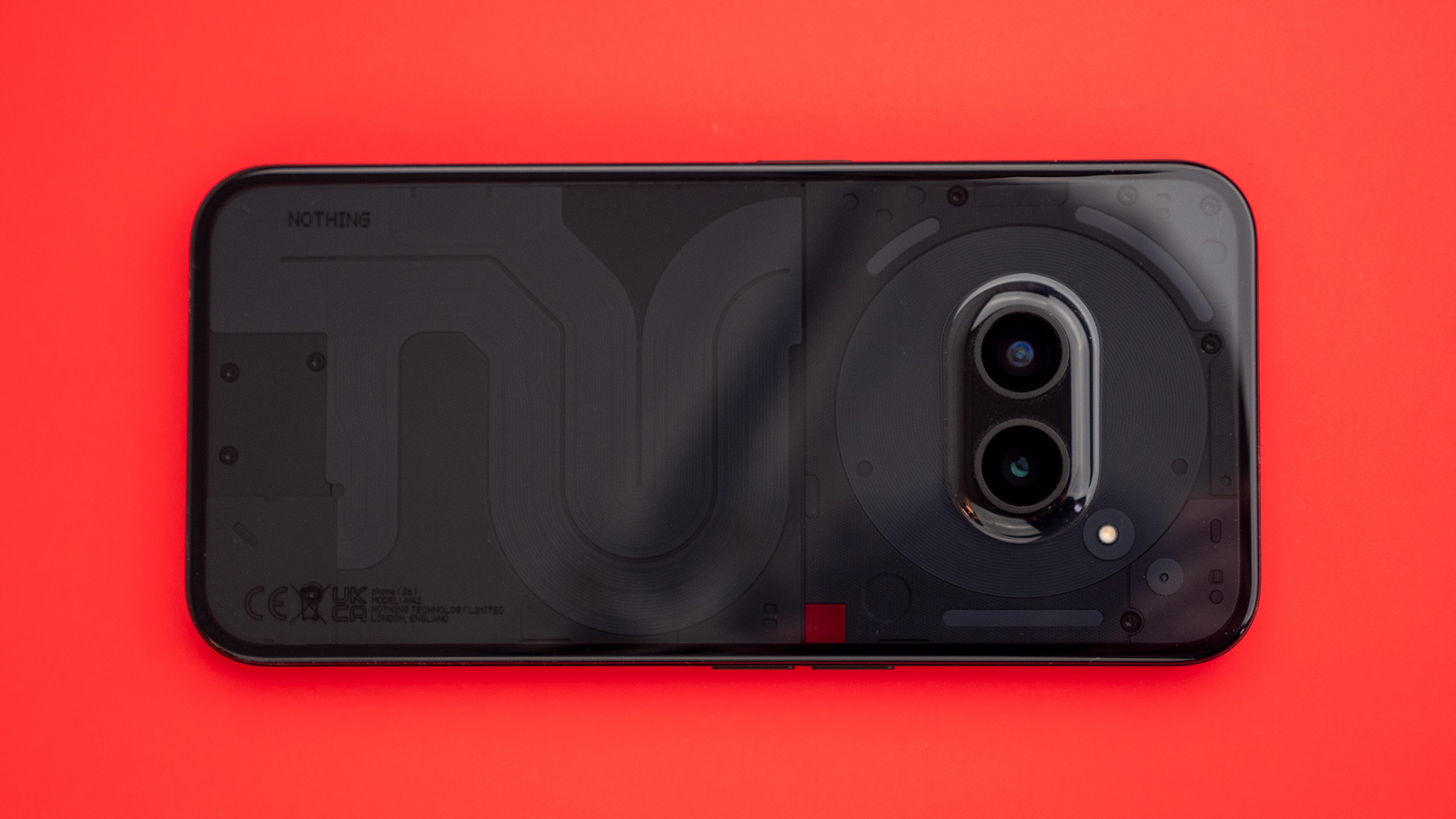
Both these phones, as noted, look stunning and unique on the outside. But what is going on behind-the-scenes in the inner workings of the devices?
The Nothing Phone 2a has a slower processor, which is one of the key features that makes it the step-down budget option. It runs on the Mediatek Dimensity 7200 Pro octa-core processor, which is more than sufficient for everyday activities. In fact, it is more than just sufficient: in his first impressions review, Sutrich played several mobile games on the device, and they ran without a hitch. This might be in part thanks to the advanced cooling system, large vapor chamber, and large cooling area that helps dissipate heat.
If you opt for the 128GB version, you’ll get 8GB RAM, but it’s advisable to go with the 256GB variant, which offers 12GB RAM. A RAM booster feature can use any free storage you have as more memory, so the phone runs more efficiently as well.
The phone comes out of the box with Android 14 and supports three years of major Android updates and four years of security updates. That’s not quite as long as with some of the bigger brands, but it’s still a decent amount of time to ensure you get the most out of the investment.

How about the Nothing Phone 2? As the older model, it comes with Android 13 out of the box but supports up to three years of major Android updates (which means you have two left after Android 14) and four years of security updates, which are delivered frequently to the device.
It runs on the more powerful Snapdragon 8 Plus Gen 1 processor, which is still a step down from the most current premium devices, but this is a middle-market phone. Sutrich says he never felt as though the phone’s performance was lacking in any way despite the older processor. He played various games and didn’t experience lag or slowdowns, even with graphics-heavy titles.
As noted, the Nothing Phone 2 comes with 128GB, 256GB, or 512GB capacities, and the smallest storage option is supported by 8GB RAM, while the two larger ones come with 12GB.
Nothing Phone 2a vs. Phone 2: The cameras
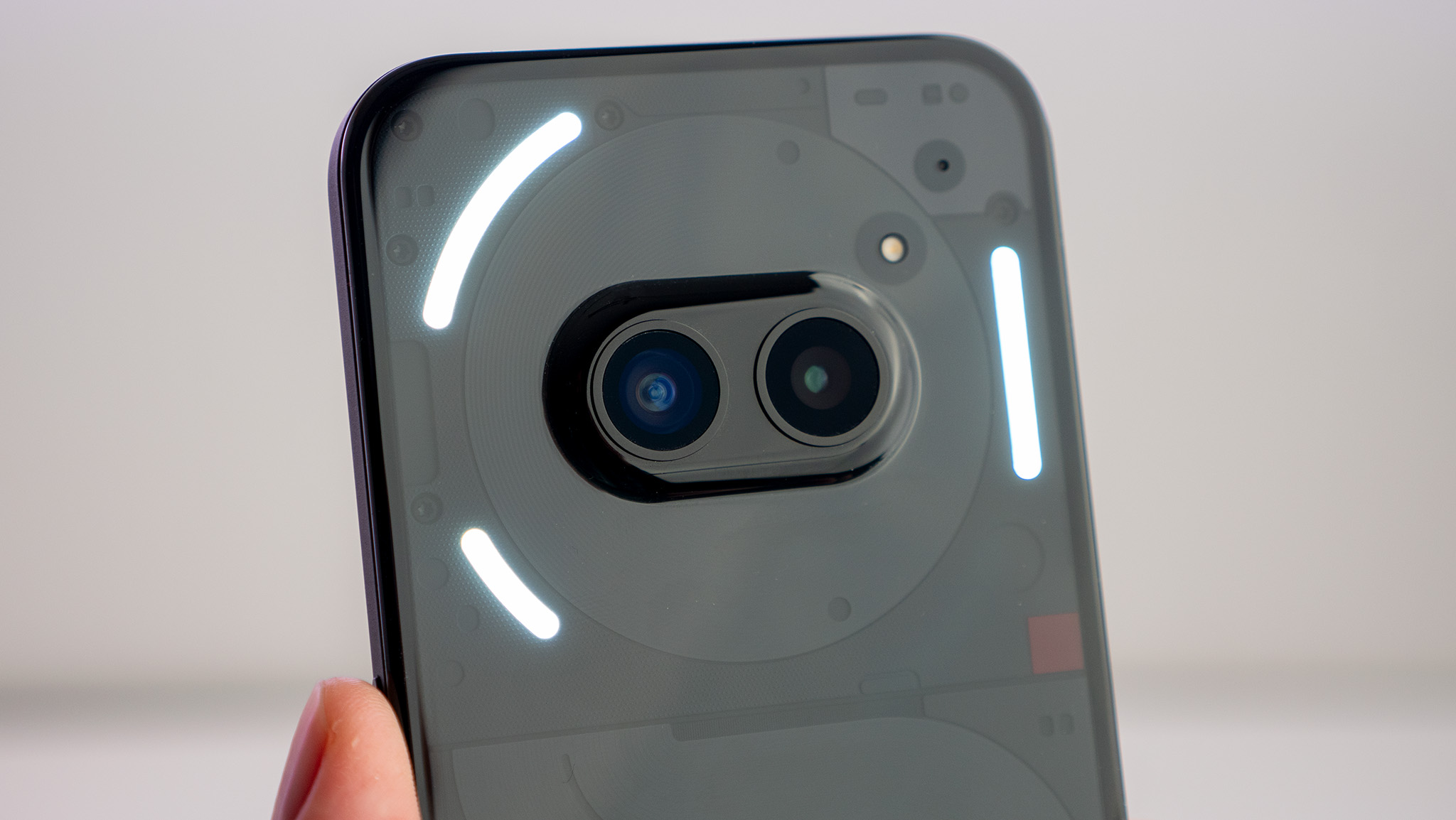
Both the Nothing Phone 2a and Nothing Phone 2 have identical camera systems. This includes a 50MP dual main camera, including an ultra-wide lens and a 32MP front wide camera. You’ll get all the usual features you’d expect for taking photos, like night photography, portraits, zoom, panorama, and more.
The biggest difference lies in the placement of the cameras: the Nothing Phone 2a has the rear camera in the center of the back, while on the Nothing Phone 2, the cameras are arranged vertically down the left side.
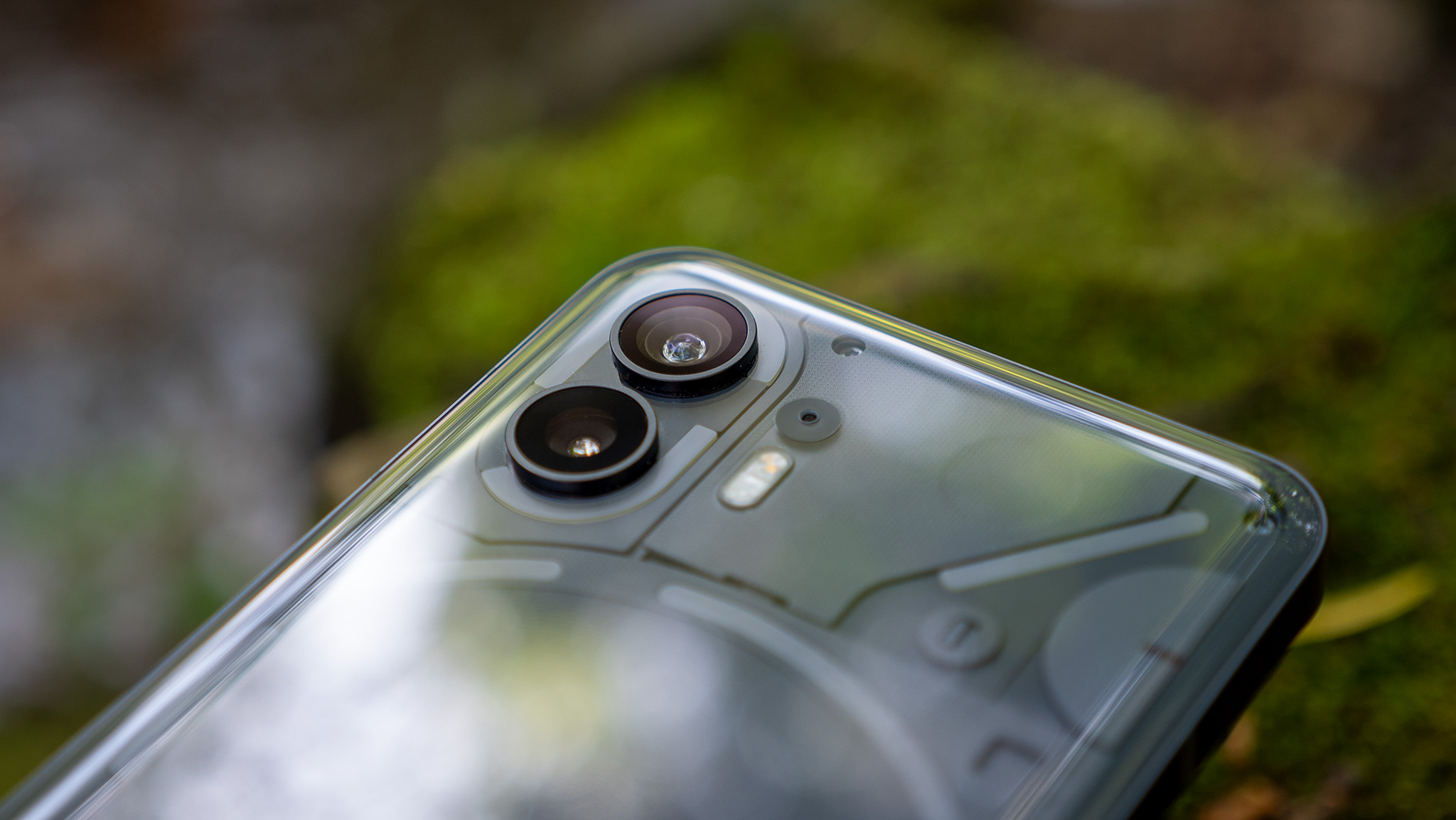
Don’t expect to get amazing photos from this phone, at least not when compared to more premium devices. But if you just want to be able to take decent shots, they are both pretty much the same in this respect. It’s worth noting that for anyone familiar with the Nothing Phone 1, Sutrich says the cameras have been “substantially improved” compared to that previous generation model.
While he didn’t test the cameras in the Nothing Phone 2a at length, Sutrich found that with the Nothing Phone 2, he got crisp and clean shots with decent dynamic range, natural colors, and portrait mode cutouts and bokeh that are “out-of-this-world” good. Assuming the Nothing Phone 2a cameras perform similarly, you’ll be happy with either phone in this respect if you’re stepping up from the Nothing Phone 1.
Nothing Phone 2a vs. Phone 2: Which should you buy?
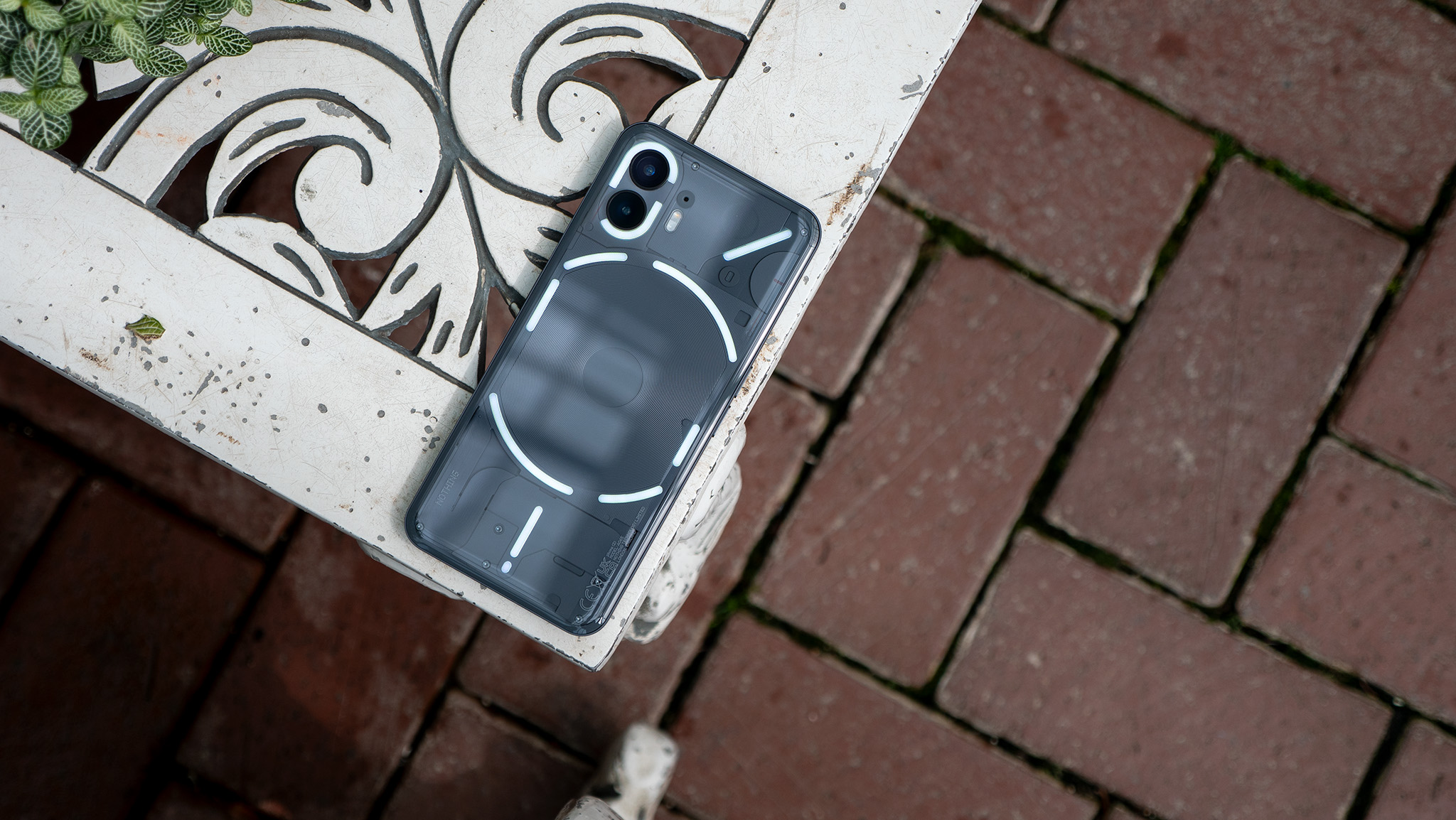
Now comes the decision between the Nothing Phone 2a vs. Nothing Phone 2. Both phones come in at affordable prices, even with the 512GB/12GB RAM version of the Nothing Phone 2. It comes down to the small details.
If you want the most built-in storage possible, you’ll want to go with the Nothing Phone 2 since it offers a 512GB option. For those who use wireless charging often, the Nothing Phone 2 is the only phone of the two that supports it. If you have other compatible devices, you’ll love being able to make use of reverse charging, too.
Since the Nothing Phone 2a is newer, however, it will last a bit longer in terms of software and security updates. But realistically, most people nowadays upgrade their phones within 2-3 years anyway. With that said, if you want a phone you can hang onto for as long as possible, the Nothing Phone 2a is the safer option.
If you use the phone a lot outdoors, you might appreciate the higher peak brightness of the Nothing Phone 2, and if you do a lot of intense tasks, the better processor and more adaptable refresh rate will make a difference, too.
The biggest consideration to make is availability. If you’re in India or the U.K., the Nothing Phone 2a is a more affordable option if you’re really pinching pennies and can live with the trade-offs. If you’re in the U.S. or Canada, you might not even be able to easily get your hands on the Nothing Phone 2a, at least for now. So, stick with the Nothing Phone 2. In both cases, you’re getting a wonderful device for a killer price.
Can’t beat the price
You won’t find a more affordable phone packed with as many features and with such a unique look as the Nothing Phone 2a. The only hindrance right now is availability since it’s only available in select countries outside of the developer program. But it’s a solid entry-level budget phone that doesn’t make too many concessions when compared to the Nothing Phone 2.
Step it up
With wider availability and step-up features, the Nothing Phone 2 is not a massive jump in price compared to the more affordable Nothing Phone 2a. It is an older model, but it’s barely a year old, so it still has tons of life left. With a brighter screen, better processor, support for wireless charging, and a more prominent Glyph interface, it’s worth the few extra bucks.







